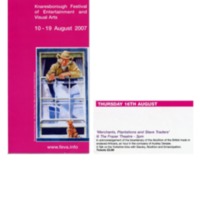
Knaresborough Festival of Entertainment and Visual Arts, 2007
Historian Audrey Dewjee gave a talk on the Yorkshire links with slavery, abolition and emancipation during Knaresborough's annual Festival of Entertainment and Visual Arts in 2007, entitled 'Merchants, Plantations and Slave Traders'.
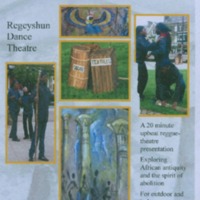
Sugar Beat Skank
Sugar Beat Skank was a reggae-theatre performance presented by Regeyshun Dance and commissioned by the Leeds Bicentenary Transformation Project. It explored 'African antiquity and the spirit of abolition', and gave voice to narratives linking the histories and cultures of Africa and Yorkshire. Sugar Beat Skank was performed at outdoor and indoor events across Yorkshire, including Ilkley Literature Festival in 2007.
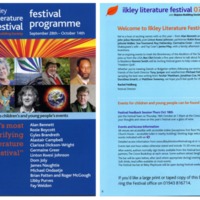
Ilkley Literature Festival, 2007
A number of events to mark the bicentenary of the Abolition Act of 1807 took place as part of Ilkley Literature Festival in 2007. Authors Caryl Phillips and Ben Okri discussed their work, and writers from the Peepal Tree Press Freedom Project premiered their poetry. 2007 Poet in Residence Rommi Smith invited festival goers to help create a unique literary 'Freedom Quilt', and gave a multi-media performance drawing on her recent visit to the Gambia. Street theatre was provided by performances of Sugar Beat Skank by Regeyshun Dance and the Leeds Bi-centenary Transformation Project. Members of the Leeds Diasporian Stories Research Group shared new material uncovered in the course of their research into the links between Yorkshire and the Atlantic trading world, and actor Joe Williams performed and answered questions as the African abolitionist Olaudah Equiano.
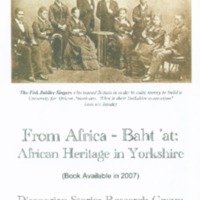
From Africa - Baht 'at: African Heritage in Yorkshire
The Diasporian Stories Research Group includes writers, historians, educators and performing artists working to uncover Black history associated with Yorkshire. To mark the bicentenary, the group published its first book 'From Africa Baht 'at', exploring links between Yorkshire and the Atlantic trading world. This included influential Black men and women who lived in or visited Yorkshire, and the shipbuilding industry of the Yorkshire coast that supplied ships for slaving voyages. The Fisk Jubilee Singers toured Britain in order to raise money to build a University for African-Americans. One of the singers settled in Yorkshire.
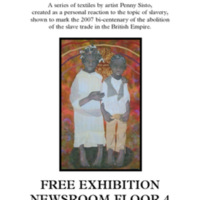
Threads of Strength and Fortitude
Threads of Strength and Fortitude was an exhibition of a series of textiles by artist Penny Sisto, created as a personal response to the bicentenary. The quilts were shipped over from New Albany, Indiana, and exhibited at the Royal Armouries in Leeds. Eight quilts explored the theme of slavery through depictions of servitude, emancipation and the flight to freedom. Pieces on show include 'Slave Ship 1,' which depicts eight enslaved Africans chained by their necks on a slave ship. Another quilt, 'Ran Away', showed a farmer leading Underground Railroad travellers by lantern light. The exhibition was accompanied by an interactive DVD, 'Ordinary People, Extraordinary Courage: Men and Women of the Underground Railroad in the Indiana and Kentucky Borderland'. There was also a series of events, including guest lectures and workshops on the subject of the abolition of slavery aimed at school and community groups. Art-based workshops explored the themes of peaceful resistance.
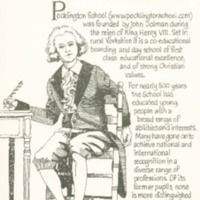
William Wilberforce Memorial 2007
William Wilberforce was a pupil of Pocklington School near York for five years, 1771-1776. In 2007 the School erected a full size bronze sculpture of Wilberforce as a school boy. The statue and memorial plaque were unveiled in September 2007 by the Archbishop of York, Dr John Sentamu.
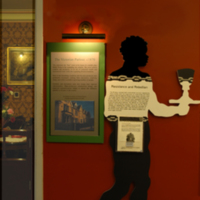
Unfair Trade
York Castle Museum's Unfair Trade exhibition used the museum's collections to explore slavery from the viewpoint of ordinary people, and how consumption of slave-produced everyday commodities - sugar, tea, coffee, cocoa - contributed to the slave trade. It also looked at the part played by York in the abolition of the slave trade and slavery, with the many Quakers of the city supporting William Wilberforce and helping to finance his election campaign. The exhibition continued the focus on consumption into modern life by asking visitors to consider where the products they buy come from. York Castle Museum features a recreated Victorian street, Kirkgate, with its own newspaper, 'The Kirkgate Examiner'. A special edition was distributed to coincide with the exhibition.
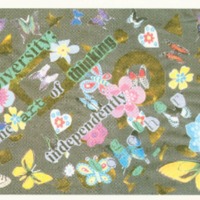
Believe in yourself...you can make change...today and tomorrow
As part of the Wilberforce 2007 programme, ArtLink Exchange, a community arts organisation in Hull, worked with local schoolchildren to produce an exhibition of artwork inspired by the bicentenary. This included artwork created by pupils from Sir Henry Cooper School and Endeavour High with artist Isaac Acheampong.
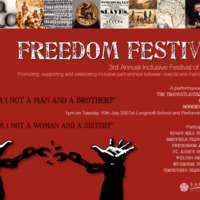
Freedom Festival 2007
East Riding's Freedom Festival in 2007 commemorated the abolition of the slave trade and explored issues of modern day slavery through a multi-sensory performance featuring pupils from mainstream and special schools in the East Riding area. The play was in three parts - the transatlantic slave trade, emancipation and modern day slavery. Resources and activities from the project were then made available to schools interested in developing an inclusive arts project.
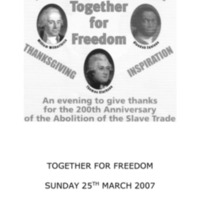
Wilberforce 2007 at Holy Trinity Church
Hull's parish church of Holy Trinity is where William Wilberforce was baptised in 1759. The Church held a number of performances and events throughout 2007. The Together for Freedom commemorative service took place on 25 March 2007, led by the Archbishop of York and featuring the Redemption Gospel Choir from Hull and Middlesbrough. The Freedom Flower Festival took place in June and the Songs of Freedom Music Festival in September, featuring performances by leading gospel performers and local schoolchildren. The London Community Gospel Choir gave a powerful concert, which highlighted the important role of music in the lives of slaves living on plantations. In August, the Freetown Society of Hull hosted a performance of the Milton Margai School for the Blind Choir from Freetown, Sierra Leone. A Panos photographic exhibition at the Church, Slave Britain, revealed the realities of contemporary human trafficking.
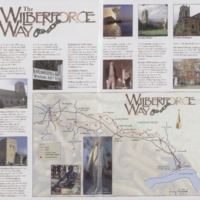
The Wilberforce Way
This sixty-mile walking trail was devised to commemorate the bicentenary by East Riding Local Strategic Partnership's Community Cohesion Forum and the Yorkshire and Humber Faiths Forum. The trail connects some of the important places in the life of the abolitionist William Wilberforce: it starts in Hull (where Wilberforce was born), connects with Pocklington in the East Riding of Yorkshire (where he attended school) and finishes at York (where he was declared MP for the County of Yorkshire).
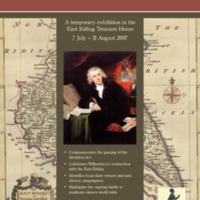
William Wilberforce, Slavery and the East Riding
Alongside commemorating the passing of the 1807 Abolition Act, the ‘William Wilberforce, Slavery and the East Riding’ exhibition at the Treasure House in Beverley also highlighted Wilberforce’s connections with the East Riding of Yorkshire. The exhibition traced the roots of the Wilberforce family back to the early 13th century, and narrated the story of William Wilberforce’s early life in a family of merchants, and later, his significant contributions to the abolition campaign. It also looked at the other links between the East Riding and slavery, in the family fortunes of the Beverley family and Watt family, founded on ownership of slave plantations, but also the anti-slavery societies established in the region. The exhibition ended by highlighting the plight of the millions of people still enslaved across the world today, and discussed some of the contemporary antislavery efforts.
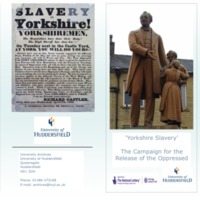
Yorkshire Slavery
Leeds-born businessman Richard Oastler was a leading figure in the 19th century campaign to end child slavery in the factories and mills of Yorkshire. The University of Huddersfield Archives, West Yorkshire Archives, Huddersfield Local History Library and Kirklees Museums and Galleries hold significant sources relating to the Huddersfield centred campaign against 'Yorkshire Slavery'. This project devised an exhibition ('The Past and Present of the Slave Trade') and heritage trail, and ran workshops for school children, local societies and youth theatres. A conference was held, and the University of Huddersfield Press later published John A. Hargreaves and E. A. Hilary Haigh, 'Slavery in Yorkshire: Richard Oastler and the campaign against child labour in the Industrial Revolution' (2012).
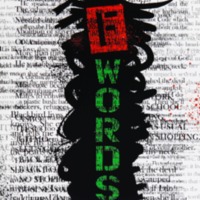
FWords
FWords was a creative response of eight Yorkshire writers and artists to the commemoration of the Abolition Act, in a project led by Peepal Tree Press in Leeds. Focusing on the many variations of the theme of 'Freedom', Fwords was created to raise the profile of Yorkshire's rich heritage of talented artists, descendants of those who migrated, forcefully and otherwise from Africa and beyond. The work of six writers was illustrated with work from two visual artists, and with a foreword from Caryl Phillips. The project was supported by printed materials, broadcasts, digital and dedicated web pages.
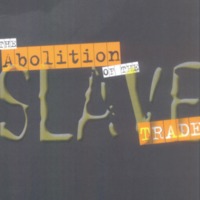
The Abolition of the Slave Trade
Kirklees Council ran a range of events in 2007, focused on local connections with slavery and abolition. Kirklees Civic Sunday was the official commemoration at Huddersfield Parish Church, with a performance by a local gospel choir and a presentation by actors as historical characters. The links between Yorkshire and the Caribbean were also explored: 8,500 people of African-Caribbean descent live in the borough of Kirklees. Events such as the Jamaica National Independence Cultural Festival, Deighton Carnival and Huddersfield Carnival celebrated African and Caribbean culture. Part of the Kirklees programme was to host the Equiano Project's touring exhibition at the Hudawi Centre in Huddersfield. The Centre went on to name one of its rooms after Equiano. Other events included talks from historians, including Richard Reddie and Paul Crooke, church services, choir concerts and theatre productions.
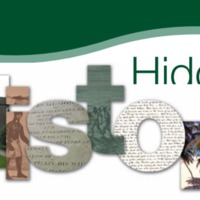
Hidden History of the Dales
This project was a collaboration between the Dales Countryside Museum in Hawes and North Yorkshire Record Office to research people and places of the Yorkshire Dales connected with Africa, the Caribbean and India. 'Hidden History' collected local stories of slave owners and traders, abolitionists, Africans and Asians who moved to the Dales, and others like the actor Ira Aldridge who passed through. The project included various community activities. Working with actor Joe Williams, pupils from the Wensleydale School explored the life of Olaudah Equiano and performed alongside Joe at the exhibition opening. There were drop-in sessions on exploring family history, carnival costume making, talks and music. The exhibition toured to other locations in Yorkshire, including Boroughbridge Library. The Dales Countryside Museum has continued to collect information relating to individuals who were connected with the Yorkshire Dales and the wider world.